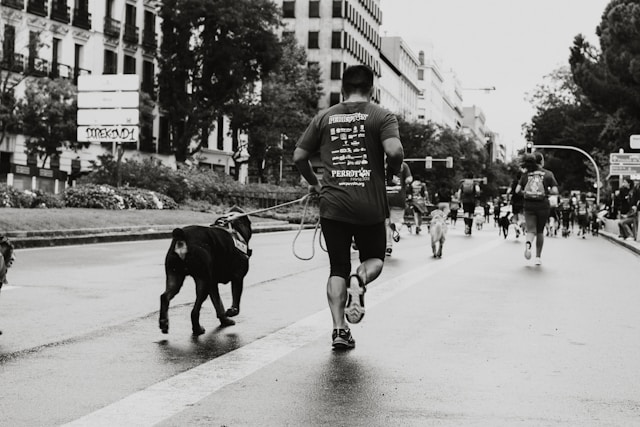Understanding Puppy Shots: All the Vaccinations Your New Pup Will Need in Their First Year

Introduction
Bringing a new puppy into your home is an exciting experience. However, alongside all the playtime and cuddles, there’s a serious responsibility: ensuring your puppy is vaccinated. Vaccinations are essential to safeguard your pup against various dangerous and potentially fatal diseases. Understanding which vaccines your puppy needs, when they need them, and why they are important can help you give your furry friend the best start in life.
Why Vaccinations Are Important
Vaccinations protect your puppy from infectious diseases that can lead to severe illness or even death. These diseases can be highly contagious and may be spread through contact with infected animals, contaminated surfaces, or the environment. By vaccinating your puppy, you’re not only protecting them but also helping to prevent the spread of these diseases to other pets and humans.
Key Benefits of Vaccinating Your Puppy
- Disease Prevention: Vaccines are designed to build immunity against specific diseases by exposing the immune system to a harmless form of the virus or bacteria. This prepares your puppy’s immune system to recognize and fight off the actual pathogens if they are ever exposed.
- Long-term Health: Vaccinated puppies are less likely to suffer from severe health issues in the future. A healthy start in life ensures that your puppy grows up strong and full of vitality.
- Public Health: Some diseases, such as rabies, can be transmitted from animals to humans. Vaccinating your puppy helps protect your family and the community.
- Compliance with Laws and Regulations: In many areas, certain vaccinations are legally required, especially if you plan to travel with your dog, attend training classes, or use boarding services.
Core vs. Non-Core Vaccinations
Vaccines are categorized into two main types: core and non-core.
Core Vaccinations
Core vaccines are considered essential for all puppies due to the widespread risk of disease, severity, and potential transmission to humans. They provide protection against highly contagious and life-threatening diseases.
1. Canine Distemper Virus (CDV)
- What It Is: A severe viral disease that affects the respiratory, gastrointestinal, and nervous systems of dogs.
- Symptoms: Fever, nasal discharge, coughing, lethargy, vomiting, diarrhea, seizures, and paralysis.
- Vaccine Schedule: First dose at 6-8 weeks, followed by additional doses every 3-4 weeks until the puppy is 16-20 weeks old. Booster shots are given every year or every three years, depending on the vet’s advice.
2. Canine Parvovirus (CPV)
- What It Is: A highly contagious virus that causes gastrointestinal illness in puppies and dogs.
- Symptoms: Severe vomiting, bloody diarrhea, lethargy, loss of appetite, and dehydration.
- Vaccine Schedule: Initial vaccination at 6-8 weeks, with boosters every 3-4 weeks until 16-20 weeks old. Annual or triennial boosters may be required.
3. Canine Adenovirus (CAV-1 and CAV-2)
- What It Is: Causes infectious hepatitis and respiratory infections.
- Symptoms: Fever, coughing, eye and nose discharge, abdominal pain, and jaundice.
- Vaccine Schedule: First shot at 6-8 weeks, then every 3-4 weeks until 16-20 weeks. Booster shots are recommended every 1-3 years.
4. Rabies
- What It Is: A fatal viral disease that affects the central nervous system and can be transmitted to humans.
- Symptoms: Aggression, excessive drooling, disorientation, paralysis, and death.
- Vaccine Schedule: Usually given at 12-16 weeks of age, followed by a booster shot after one year and then every 1-3 years depending on local regulations.
Non-Core Vaccinations
Non-core vaccines are recommended based on your puppy’s lifestyle, geographical location, and risk of exposure to certain diseases. These vaccines are not required for all puppies but may be essential in specific situations.
1. Bordetella Bronchiseptica
- What It Is: A bacterium that causes kennel cough, a highly contagious respiratory disease.
- Symptoms: Persistent cough, sneezing, nasal discharge, and in severe cases, pneumonia.
- Vaccine Schedule: The vaccine can be given as early as 8 weeks of age with boosters every six months to a year, especially for dogs frequently exposed to other dogs, such as in kennels, groomers, or dog parks.
2. Leptospirosis
- What It Is: A bacterial infection that can lead to liver and kidney damage and can be transmitted to humans.
- Symptoms: Fever, muscle pain, vomiting, diarrhea, jaundice, and kidney failure.
- Vaccine Schedule: Administered around 8-9 weeks with a follow-up booster 3-4 weeks later. Annual boosters are recommended.
3. Lyme Disease
- What It Is: A bacterial infection transmitted by ticks.
- Symptoms: Fever, lameness, swollen joints, loss of appetite, and fatigue.
- Vaccine Schedule: First dose given at around 12 weeks, followed by a booster 3-4 weeks later. Annual vaccination may be needed based on risk factors.
4. Canine Influenza
- What It Is: A contagious respiratory disease caused by the canine influenza virus.
- Symptoms: Cough, runny nose, fever, lethargy, and reduced appetite.
- Vaccine Schedule: The initial vaccine can be given at 6-8 weeks, followed by a booster two weeks later. Annual boosters are recommended.
Typical Puppy Vaccination Schedule
It’s essential to follow a consistent vaccination schedule to ensure that your puppy is protected at all times. Below is a typical vaccination schedule for puppies in their first year:
- 6-8 Weeks Old:
- First dose of Distemper, Parvovirus, and Adenovirus (DHPP).
- Bordetella (if needed).
- 10-12 Weeks Old:
- Second dose of DHPP.
- Leptospirosis (if needed).
- Lyme disease (if needed).
- Canine Influenza (if needed).
- 14-16 Weeks Old:
- Third dose of DHPP.
- Rabies (required by law in many areas).
- Second dose of Leptospirosis, Lyme disease, and Canine Influenza (if administered earlier).
- 12-16 Months Old:
- Booster for DHPP.
- Rabies booster.
- Additional boosters for non-core vaccines based on the risk of exposure.
Preparing for Vaccination Day
Here are some tips to ensure your puppy’s vaccination day goes smoothly:
- Stay Calm: Puppies can pick up on your emotions, so remain calm and reassuring during the visit.
- Bring Treats: Reward your puppy for good behavior to make the experience positive.
- Keep Your Puppy Hydrated and Well-fed: Ensure your puppy has eaten and had water before the appointment to avoid discomfort or dizziness.
- Comfort Items: Bring a favorite toy or blanket to help your puppy feel secure.
- Ask Questions: Don’t hesitate to ask your vet about any concerns or questions you may have regarding the vaccinations.
Aftercare and Monitoring
After vaccinations, your puppy may experience mild side effects such as soreness at the injection site, mild fever, or lethargy. These symptoms typically resolve within a day or two. However, if your puppy shows signs of an allergic reaction such as swelling, difficulty breathing, or severe vomiting, contact your vet immediately.
Tips for Post-Vaccination Care
- Provide a Comfortable Environment: Let your puppy rest in a quiet, comfortable place to recover.
- Monitor for Unusual Behavior: Keep an eye out for any signs of distress or allergic reactions.
- Limit Physical Activity: Avoid vigorous play and exercise for a day or two post-vaccination.
- Hydration and Nutrition: Ensure your puppy has access to fresh water and nutritious food.
Cost of Puppy Vaccinations
The cost of vaccinating a puppy can vary based on location, veterinary clinic, and the type of vaccines required. On average, puppy vaccination packages for the first year can range from $75 to $200. Additional non-core vaccines may increase the cost. Some veterinary clinics offer vaccination packages that can help save money. Always consult your vet to understand the costs involved and discuss any financial concerns.
Conclusion
Understanding and adhering to a proper vaccination schedule is crucial for your puppy’s health and well-being. By keeping up with your puppy’s vaccinations, you are protecting them from potentially life-threatening diseases and contributing to the overall health of the pet community. Consult with your veterinarian to tailor a vaccination plan that best suits your puppy’s needs and lifestyle. With the right care, your puppy will grow up to be a healthy and happy member of your family.




